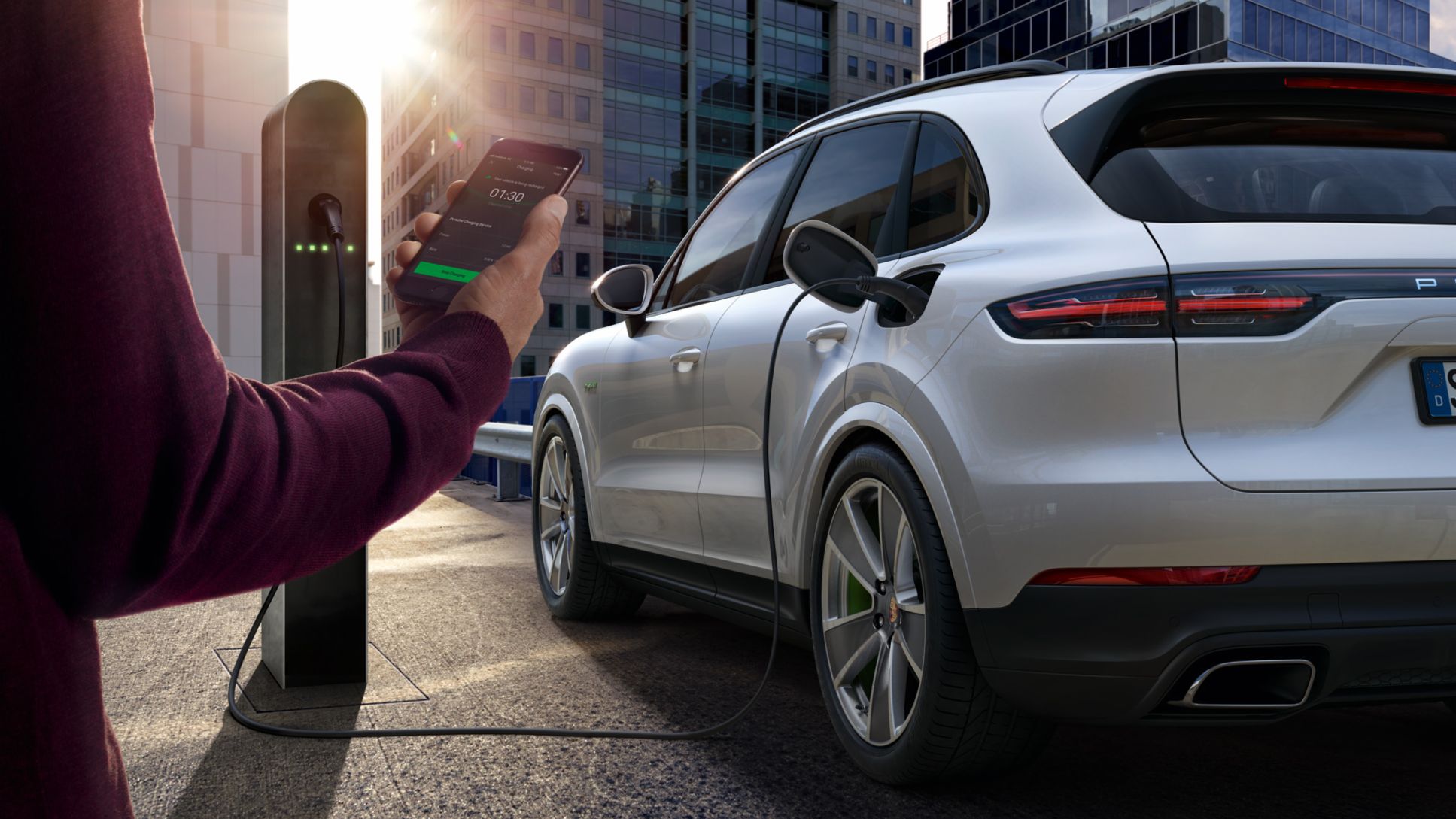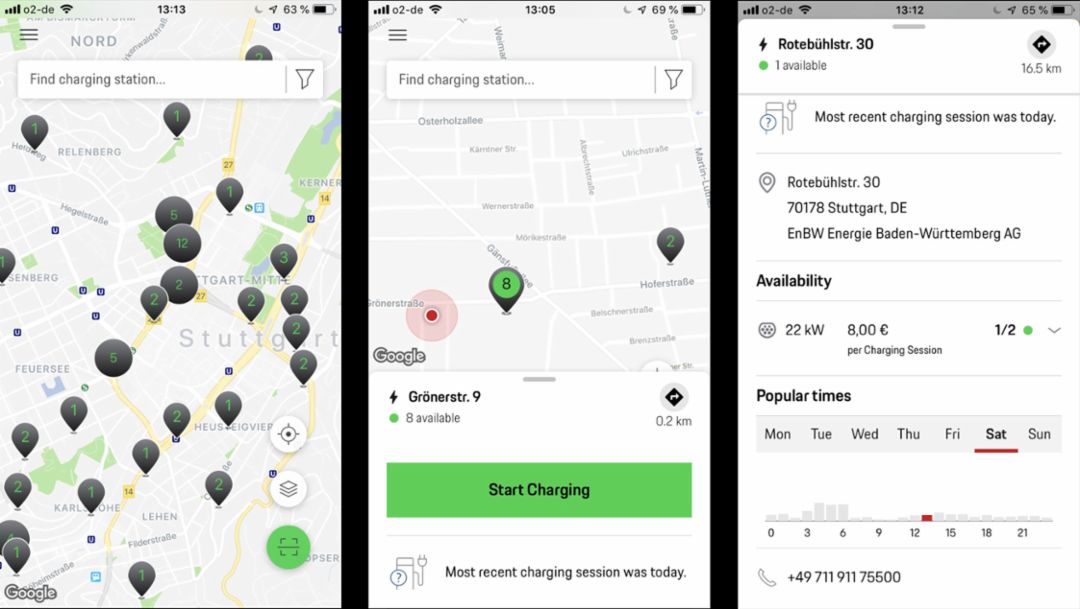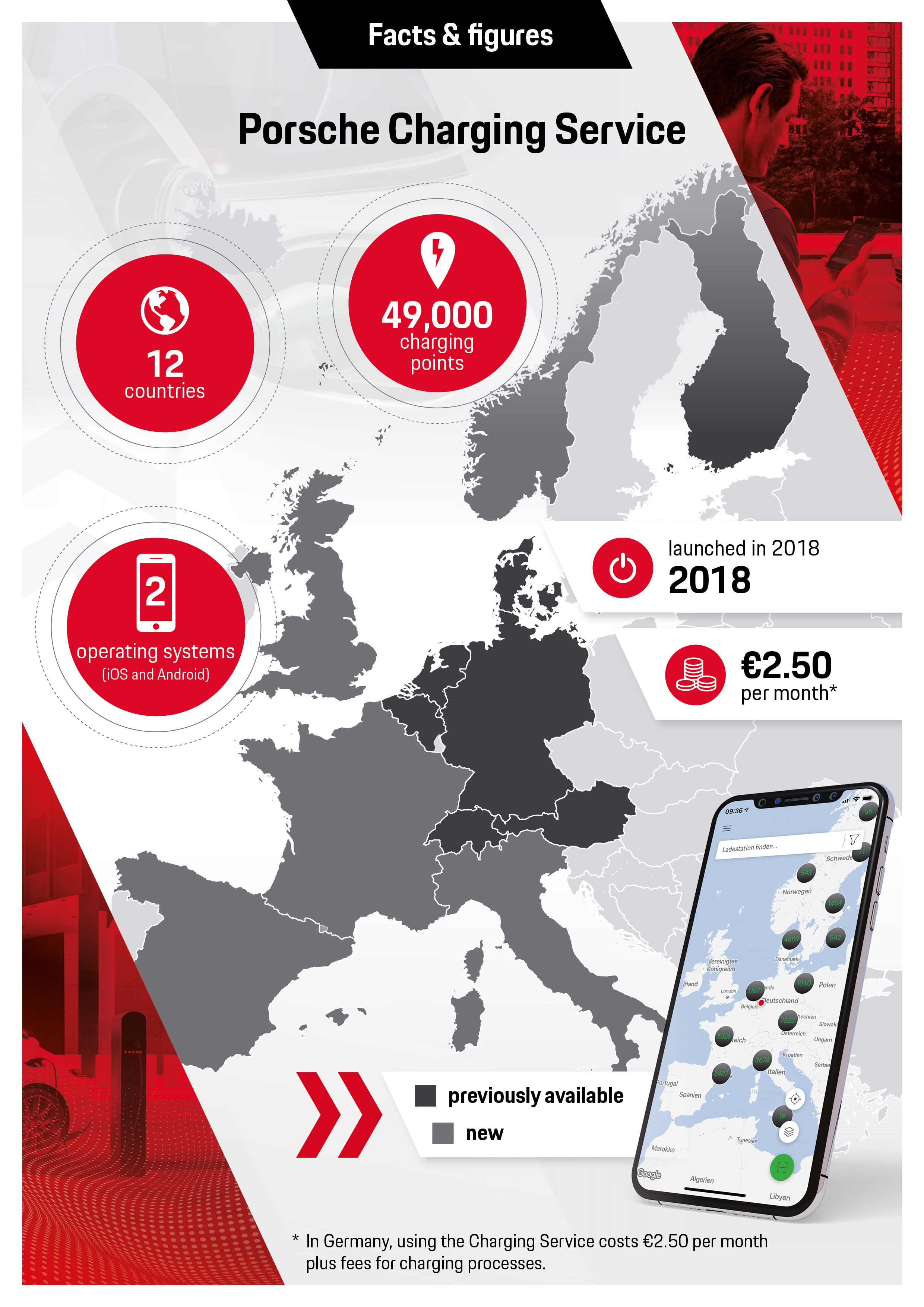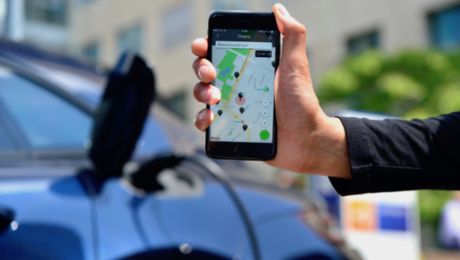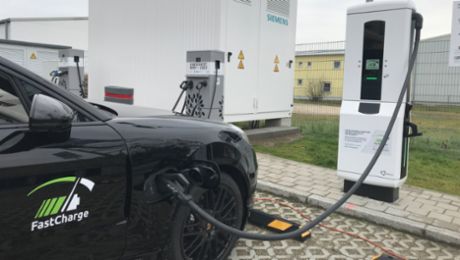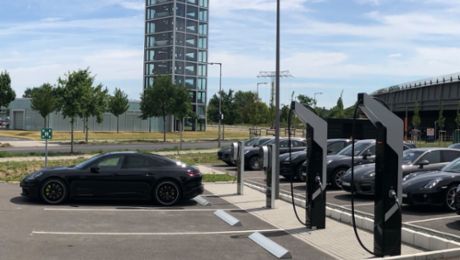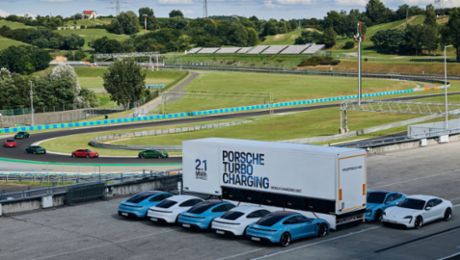Alongside Germany, Austria, Switzerland, Denmark, the Netherlands, Belgium and Finland, the charging service is now also available in Norway, France, Spain, Great Britain and Italy.
A new feature offered by the Porsche Charging Service is a rating function. This indicates when a vehicle was last charged at a charging station, and also lets users know how up-to-date and reliable the information is for the respective charging point. In order to permit better planning of charging operations, the daily capacity utilisation of the charging station is also shown. In addition, the user interface in the app and the navigation function have been improved: After selecting a charging point, it is now easier to switch to navigation via Google Maps, whether on a smartphone or via Apple CarPlay in the vehicle.
The service performs invoicing via centrally stored payment details
The Porsche Charging Service, the digital platform for all charging-related services, was launched in May 2018. The service searches for suitable charging stations and performs invoicing via centrally stored payment details. It is therefore not necessary to register with different providers. This takes place across the covered countries at a guaranteed unit price per market and independent of currency. The corresponding free app and the Porsche navigation system guide customers to the selected charging station.
Information on the location and availability of charging stations and on the price for vehicle charging are available in real-time. At the charging station, user identification takes place either by QR code via the app or with the so-called “Porsche ID Card”, which users receive free of charge after registering for the service.
Info
In Germany, the fee for using the Porsche Charging Service is €2.50 per month. The costs for actual charging come on top of this: these depend on the provider as well as the amount of power charged. The prices are shown in detail and also according to power class/charging speed if wished. The app can be used on all mobile devices with iOS or Android operating system. The service is generally available to all drivers of hybrid or electric vehicles. It is not limited to Porsche sports cars. Registration is possible via www.porsche.com/connect-store.
Consumption data
Cayenne E-Hybrid: Fuel consumption combined 3.4 – 3.2 l/100 km; CO2emissions 78 – 72 g/km; energy consumption: 20.9 – 20.6 kWh/100 km
Panamera 4 E-Hybrid Sport Turismo: Fuel consumption combined 2.6 l/100 km; electric power consumption 15.9 kWh/100 km; CO2 emissions 59 g/km
